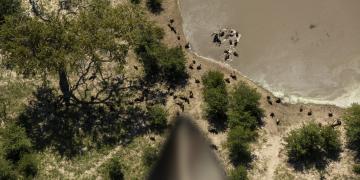Understanding scavengers, predators, their communities, ecosystems and conservation challenges
Advancing animal-borne remote sensing, GPS tracking and monitoring
Artificial intelligence(s) for behaviour recognition, carcass detection and image recognition
Developing a new generation of animal tags and concepts for a digital swarm intelligence in networks of devices
Establishing a satellite-based IoT communication system
Integrating zoological gardens and animals under human care into a science- and technology-driven research and conservation project
Local capacity building for implementing and upscaling the solution
